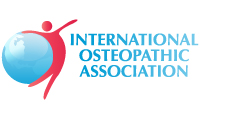This Code of Ethics is based upon the acknowledgement that the social contract dictates the manual osteopathy profession’s responsibilities to the patient, the public, and the profession; and upholds the fundamental principle that the paramount purpose of the manual osteopath's professional services shall be to benefit the patient.
1. Manual osteopaths should adhere to a commitment to the highest standards of excellence and should attend to their patients in accordance with established best practices.
2. Manual osteopaths should maintain the highest standards of professional and personal conduct, and should comply with all governmental jurisdictional rules and regulations.
3. Therapist-patient relationships should be built on mutual respect, trust and cooperation. In keeping with these principles, manual osteopaths shall demonstrate absolute honesty with regard to the patient’s condition when communicating with the patient and/or representatives of the patient. Manual osteopaths shall not mislead patients into false or unjustified expectations of favourable results of treatment. In communications with a patient and/or representatives of a patient, manual osteopaths should never misrepresent their education, credentials, professional qualification or scope of clinical ability.
4. Manual osteopaths should preserve and protect the patient's confidential information, except as the patient directs or consents, or the law requires otherwise.
5. Manual osteopaths should employ their best good faith efforts to provide information and facilitate understanding to enable the patient to make an informed choice in regard to proposed manual osteopathy treatment. The patient should make his or her own determination on such treatment.
6. The therapist-patient relationship requires the manual osteopaths to exercise utmost care that he or she will do nothing to exploit the trust and dependency of the patient. Sexual misconduct is a form of behaviour that adversely affects the public welfare and harms patients individually and collectively. Sexual misconduct exploits the therapist-patient relationship and is a violation of the public trust.
7. Manual osteopaths should willingly consult and seek the talents of other health care professionals when such consultation would benefit their patients or when their patients express a desire for such consultation.
8. Manual osteopaths should never neglect nor abandon a patient. Due notice should be afforded to the patient and/or representatives of the patient when care will be withdrawn so that appropriate alternatives for continuity of care may be arranged.
9. With the exception of emergencies, Manual osteopaths are free to choose the patients they will serve, just as patients are free to choose who will provide healthcare services for them. However, decisions as to who will be served should not be based on race, religion, ethnicity, nationality, creed, gender, handicap or sexual preference.
10. Manual osteopaths should conduct themselves as members of a learned profession and as members of the greater healthcare community dedicated to the promotion of health, the prevention of illness and the alleviation of suffering. As such, Manual osteopaths should collaborate and cooperate with other health care professionals to protect and enhance the health of the public with the goals of reducing morbidity, increasing functional capacity, increasing the longevity of the population and reducing health care costs.
11. Manual osteopaths should exercise utmost care that advertising is truthful and accurate in
representing the health practitioner's professional qualifications and degree of competence. Advertising should not exploit the vulnerability of patients, should not be misleading and should conform to all governmental jurisdictional rules and regulations in connection with professional advertising.
12. Manual osteopaths shall protect the public and the profession by reporting incidents of unprofessional, illegal, incompetent and unethical acts to appropriate authorities and organizations and should stand ready to testify in courts of law and in administrative hearings.
13. Manual osteopaths have an obligation to the profession to endeavour to assure that their behaviour does not give the appearance of professional impropriety. Any actions which may benefit the practitioner to the detriment of the profession must be avoided so as to not erode the public trust.
14. Manual osteopaths should recognize their obligation to help others acquire knowledge and skill in the practice of the profession. They should maintain the highest standards of scholarship, education and training in the accurate and full dissemination of information and ideas.

